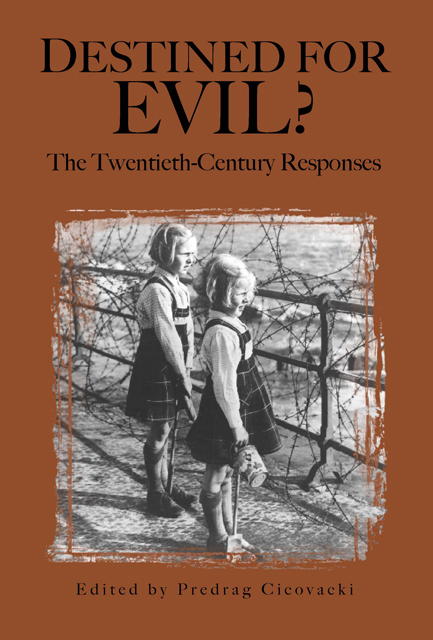Book contents
5 - The Reality of Radical Evil
Published online by Cambridge University Press: 17 March 2023
Summary
According to academic Conventional Wisdom at the beginning of the twenty-first century in many academic and media circles, as well as in many textbooks in the natural and “social” sciences, evil cannot exist. The reason is simple: Conventional Wisdom has it that consciousness itself does not exist. Thought, and indeed every variety of consciousness, is merely either the product of the movement of neurons and axons caused by random chemical fluctuations in the brain, or else the product of cause and effect once quantum fluctuations have been taken into consideration. In this Conventional Wisdom, there can be no truth, no goodness, no beauty—and no evil.
Consequently philosophical and religious leaders such as Plato, Jesus, and Siddhartha must all have been badly mistaken or even disturbed people, for the reason that their Wisdom does not fit twenty-first-century Conventional Wisdom. Or, if it was their followers who invented the ideas attributed to Jesus and Siddhartha, those followers—such as St. Paul the Apostle or the Dalai Lama—must themselves have been disturbed.
Conventional Wisdom accepts only that Tibetan Buddhism, rabbinic Judaism, and the Christian theology of the Church Fathers, as examples, exist (or existed) as mere social constructs rather than as insights into reality. Consequently, Conventional Wisdom says, sociologists, anthropologists, psychologists, economists, and historians may study them only as such and may not take their intellectual content seriously. Anyone who does not follow contemporary Conventional Wisdom must be ignorant, stupid, insincere, or at the least sadly misled. The problem is that the question remains: By what standards is the Conventional Wisdom to be judged? Is it not itself a social construct? Since there is no consciousness by which consciousness is to be judged, what makes contemporary valid consciousness and that of Christ or Buddha false consciousness? Courageous atheists, such as Friedrich Nietzsche and Jean-Paul Sartre, have admitted the problem but have gone on to insist on the “will to power” or “the will to say No,” subordinating any sort of rational system to the “will” (though Sartre himself insisted upon the radical reality of evil). The will to power has come to dominate contemporary academic departments of humanities and social science.
- Type
- Chapter
- Information
- Destined for Evil?The Twentieth-Century Responses, pp. 81 - 90Publisher: Boydell & BrewerPrint publication year: 2005

